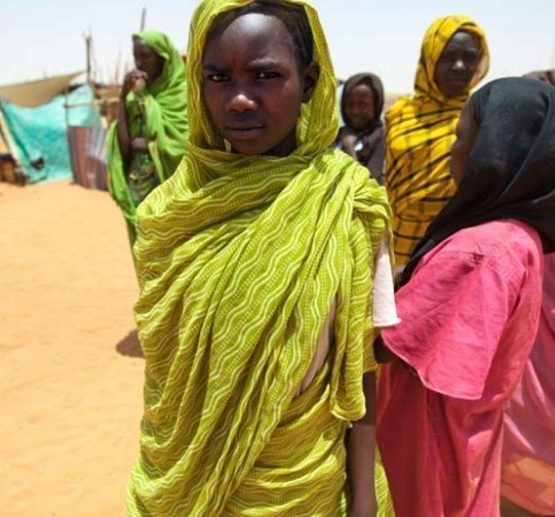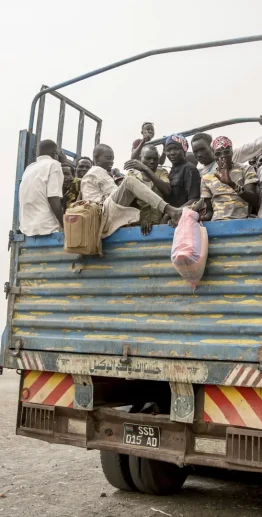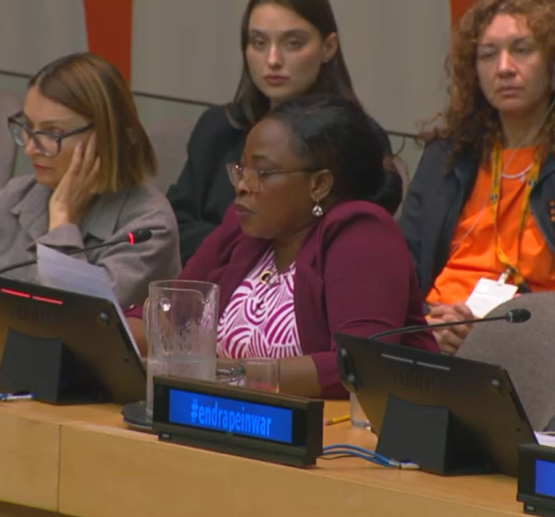International Women’s Day 2025
To our supporters,
We at Darfur Women Action Group would like to mark this International Women’s Day by recognizing the resilience, courage and resolve of the women of Sudan fighting for justice in face of horrific atrocities. We are pleased to honor all of the brave Sudanese women for their unmatched resilience and for using their strength and courage to help their community survive and persist in the wake of genocide, war, sexual violence, and displacement, in Sudan, abandoned by the world.
It has been nearly two years since Sudan was engulfed in vicious violence, with indiscriminate attacks resulting in death, destruction, and displacement of millions of innocent civilians, particularly in Darfur and across Sudan. Sexual and gender based violence has been a defining feature of the recent war in Sudan, where rape has been systematically used as a weapon of war.
Last year, the UN Panel of Experts on Sudan and the UN Fact Finding Mission (FFM), reported widespread and escalating conflict-related sexual violence in Darfur, including kidnapping, rape, and sexual exploitation of women and girls.
Both the UN panel of Experts and the UN FFM reported widespread sexual violence committed by members of the RSF and allied militias in all areas under their control and the targeting of women due to their ethnicity, particularly in Darfur. DWAG alone has documented about 350 cases of rape and sexual violence and over 150 cases of reproductive emergency among displaced women in Darfur. Most of whom are still in dire need of treatment, trauma counseling and psychosocial support
Despite these risks, grassroots and women-led organizations continue to be the lifeline for their people. When the war erupted and the international aid agencies abandoned Sudan, it was the women of Sudan, along with volunteers and civil society leaders, who stepped up, becoming frontline humanitarian workers: going out every day, delivering aid and helping their communities survive, documenting atrocities, and ensuring that the international community keeps its eyes on Sudan. “It’s indeed their bravery that draws the bold line between hope and despair,” said Ms. Ahmadi, DWAG president.
However, they cannot do it much longer without help from the global community. At DWAG, we promised them that they will never remain silent as these inhuman acts continue with total impunity.
Today, the situation for Sudanese women and children is dire. Every week, we receive new information from the ground on the use of sexual and gender based violence as a weapon of war. On Tuesday, March 4, UNICEF released a disturbing report on mass sexual violence. Armed militias of men have been committing rape and sexual assault against children as young as one years old. Some have been affected so deeply by this trauma that they have attempted to end their own lives. These acts of violence cannot be allowed to continue.
Sudanese women and children are amongst the most vulnerable populations within this conflict and genocide and are subject to extreme horrors. Not only do women and children face the brunt of mass sexual violence, they are often forced to contend with severe social stigma and a fear of retaliation. In addition to the stigma of even coming forward as a survivor, there are very limited medical and social services that can address the needs of those who have been harmed. In the fall of last year, the world witnessed in horror as a large number of women in the El Jazeera state were forced to committ suicide to avoid rape. According to the United Nations, 6.7 million in Sudan were in need of services addressing gender based violence by the end of 2023. Women’s healthcare has been gravely affected by war. Hospitals and medical services that specifically address women’s issues and gynecology have been attacked by RSF shelling leaving women with no place to go. Additionally, female-led households are particularly vulnerable to famine and food insecurity. The majority of 13 million displaced by war in Sudan are women and children.
The women of Sudan are powerful, resilient, and courageous and have been on the frontlines fighting for change, despite the target it puts on their backs. In 2019, women made up 2/3rds of the peaceful protests that led to the ousting of genocidaire, war criminal, and former Sudanese president, Omar Al-Bashir. Not only must the violence against Sudanese women end, but they must be given their rightful place in decision making and role in the peace process. In 2023, Sudanese women of all backgrounds came together in Uganda to formulate their visions for peacebuilding and their priorities regarding the gendered impact of war. Sudanese women have proven themselves to be persistent, brave, and effective participants and their demands must not be brushed aside.
Throughout this conflict, the international community has taken limited intervention and action to prevent genocide, mass atrocities, and gender based violence. There has been no attempt made to protect vulnerable members of Sudanese societies from mass rape, displacement, food insecurity, and more.
The crimes against women and their community in Sudan are crimes of global magnitude that require global solidarity and actions. Therefore, on this International Women’s Day, DWAG would like to remind our supporters to stand in solidarity with the women of Sudan, speak out and demand serious action to end sexual violence, the use of rape as a weapon of war, and genocide in Sudan.
We call on the UN Security Council, the African Union, the United States, and the larger international community to fulfill their obligation to the women of the world and take the following steps to support and protect Sudanese women.
- UNSC to adopt a gender-responsive atrocities prevention framework for resolving crises in Sudan which include UNSC using existing measures at its disposal to pressure the belligerents to immediately cease the war and all the crimes against women.
- Prioritize strong UN presence on the ground in Sudan for civilian protection, unhindered humanitarian aid delivery and adequate documentation of atrocities.
- UNSC must propose clear benchmarks for women’s inclusion, and integrate the UN envoy’s mandate and obligate its other organs to report periodically on women’s situation. Financial resources and technical assistance is paramount to ensure women are empowered and enabled to participate from the start including in ceasefire negotiation, monitoring and the long-term peace building effort.
- Criminal and financial accountability for crimes committed in Sudan, with special emphasis on crimes committed against women and women’s inclusion in the process of justice from investigation, during the trial and post-trial arrangements.
- Member states must include crimes committed against women a priority measure in sanctions designation, all financials and criminal accountability processes.
- Adequate funding for women led organizations for documentation and protection of the GVB survivors and restoration of their dignity.
What you can do to help:
- Support our Stand with Sudan campaign by contacting your member of Congress, the United Nations Security Council members, or writing a letter to the editor of your local newspapers.
- Reshare our posts on social media and use the hashtag #StandWithSudan and #EmpowerWomenofSudan.
- Light a candle and change your social media profile pictures to a purple theme
- Donate to DWAG to help fund our efforts on the ground in Darfur and Sudan as a whole.
Please join us this month in celebrating the heroic and resilient women of Sudan by standing in solidarity and taking action to end their suffering. When we combine our efforts, we are capable of achieving great change.
Thank you for your continued support.
Niemat Ahmadi, Founder and President of DWAG



